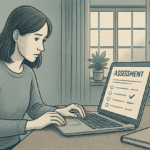Bipolar Treatment
Bipolar disorder is a complex and challenging mental health condition that affects millions of individuals worldwide. At Mission Connection Healthcare, we understand the unique struggles faced by those with bipolar disorder and offer comprehensive bipolar treatment services to provide you with the support and strategies you need to thrive.

Recognizing the Signs of Bipolar Disorder
Formerly called manic-depressive illness, bipolar disorder involves extreme mood swings, alternating between periods of mania and depression. It's crucial to recognize its signs early for effective treatment.
During a manic episode, individuals may persistently experience an abnormally elevated or irritable mood. They may feel overly confident, euphoric, or have an exaggerated sense of self-importance.
Manic episodes are often accompanied by a surge in energy levels. Individuals may feel restless, hyperactive, and have a reduced need for sleep without experiencing fatigue.
Rapid and racing thoughts are common during mania. Individuals may find it challenging to concentrate on one task, leading to distractibility and impulsivity.
Manic episodes can lead to impulsive and risky behaviors, such as excessive spending, reckless driving, substance abuse, or engaging in dangerous activities without considering the consequences.
Some individuals may experience increased creativity and productivity during manic episodes, but these periods can be followed by emotional crashes.
Depressive episodes are characterized by persistent and overwhelming feelings of sadness, hopelessness, and a loss of interest or pleasure in previously enjoyed activities.
Individuals in a depressive state often feel fatigued, both mentally and physically, making it difficult to carry out daily tasks.
Depressive episodes may lead to changes in sleep patterns, such as insomnia (difficulty falling or staying asleep) or hypersomnia (excessive sleepiness).
Some individuals experience changes in appetite and weight during depressive episodes, leading to either overeating or loss of appetite.
During depressive episodes, individuals commonly experience low self-esteem, self-criticism, and feelings of guilt or worthlessness.
The coexistence of manic and depressive symptoms simultaneously or in rapid succession can create a particularly challenging and distressing experience for individuals with bipolar disorder.
Individuals with bipolar disorder typically exhibit a cyclical pattern of mood episodes. These mood swings can vary in frequency, with some experiencing several episodes per year, while others have less frequent occurrences.
Bipolar disorder can significantly impact an individual’s daily functioning, relationships, and overall quality of life, especially when left untreated.
Types of Bipolar Disorder
Trauma deeply impacts individuals, affecting their mental, emotional, and physical well-being. It comes in various forms, each with lasting effects. Here are common types:
- Bipolar I Disorder: In this disorder, individuals experience manic episodes lasting at least seven days or severe enough to require hospitalization, often accompanied by depressive episodes.
- Bipolar II Disorder: Characterized by recurrent depressive episodes and less severe hypomanic episodes.
- Cyclothymic Disorder (Cyclothymia): Involves chronic mood disturbances with periods of hypomanic and depressive symptoms lasting at least two years.
- Rapid Cycling Bipolar Disorder: Some individuals experience four or more mood episodes within a year, making management more challenging.
- Mixed Features Specifier: Applied when individuals experience a mix of manic or hypomanic symptoms and depressive symptoms simultaneously.
- Not Otherwise Specified (NOS): Used when symptoms don’t fit neatly into other categories but still significantly disrupt mood.

The Benefits of Bipolar Treatment
With proper treatment and support, individuals living with bipolar disorder can experience significant improvements in their quality of life. Bipolar treatment provides a range of benefits that can help individuals manage their symptoms, achieve stability, and lead fulfilling lives despite the challenges posed by the condition.
Mood Stabilization
Bipolar treatment aims to stabilize mood swings, reducing the frequency and severity of manic and depressive episodes, thereby providing individuals with a more predictable and manageable emotional state.
Better Decision-Making
Treatment helps individuals develop coping skills and make more rational decisions during manic or hypomanic states when impulsivity and risky behavior are common, thereby promoting greater stability and well-being.
Improved Symptom Management
Treatment helps individuals better manage the symptoms of bipolar disorder, such as mood swings, impulsivity, irritability, and changes in sleep patterns, leading to greater emotional control and stability.
Community Support
Bipolar treatment often connects individuals with support groups and resources, fostering a sense of community and reducing isolation, thereby promoting a supportive environment for managing the condition effectively.
What to Expect from Our Bipolar Treatment
Compassionate and Experienced Team
Our team of mental health professionals has undergone extensive training and possesses considerable experience in a variety of therapeutic modalities. We are committed to delivering compassionate, evidence-based care tailored to your unique needs.
Comprehensive Range of Services
Mission Connection Healthcare provides a broad spectrum of mental health services, encompassing online therapy, medication management, and specialized treatment for various mental health conditions. Whether you're coping with depression, anxiety, trauma, bipolar disorder, or other mental health challenges, we possess the expertise to assist you.
Personalized Treatment Plans
We understand that every individual is unique, and mental health care should align with your specific needs. Our clinicians collaborate closely with you to devise personalized treatment plans that address your goals and concerns.
Online Convenience
We offer the convenience of online therapy, enabling you to access mental health services from the comfort of your own home. This flexibility eliminates the need for commuting and provides greater scheduling convenience.
Confidentiality
We prioritize your privacy. Adhering to strict confidentiality guidelines, we ensure that your personal and medical information receives the highest level of confidentiality and complies with privacy laws and regulations.
Frequently Asked Questions
Individuals with bipolar disorder experience extreme mood swings, alternating between periods of mania and depression. Managing bipolar disorder usually requires a combination of medication, therapy, lifestyle changes, and support to stabilize mood and effectively manage symptoms.
Bipolar disorder includes types such as Bipolar I, Bipolar II, Cyclothymic Disorder (Cyclothymia), Rapid Cycling Bipolar Disorder, and Mixed Features Specifier. Each type has its own set of diagnostic criteria and characteristics.
If you suspect you may have bipolar disorder due to mood swings, impulsivity, or other symptoms, it is essential to seek a comprehensive evaluation from a mental health professional. Accurate diagnosis is crucial for effective treatment.
Psychiatrists typically oversee medication management, as medications such as mood stabilizers, antipsychotics, and antidepressants play a crucial role in bipolar treatment by stabilizing mood and managing symptoms.
Therapy approaches such as Cognitive-Behavioral Therapy (CBT), Dialectical Behavior Therapy (DBT), Psychoeducation, and Family Therapy are often part of bipolar treatment. These therapies help individuals develop coping skills and manage mood swings.
With proper treatment and support, individuals can achieve stability and lead fulfilling lives, despite bipolar disorder being a lifelong condition that typically requires ongoing treatment.
While therapy and lifestyle changes alone may effectively manage symptoms for some individuals with bipolar disorder, medication often plays a crucial role in treatment, particularly for those with more severe forms of the condition.
Maintaining a regular sleep schedule, managing stress, avoiding substance abuse, maintaining a healthy diet, and engaging in regular exercise are lifestyle changes that can help stabilize mood and promote overall well-being.
The duration of bipolar treatment varies from person to person and depends on the individual’s response to treatment and the course of the disorder. Some individuals may require treatment for extended periods, while others may have periods of stability.
Many insurance plans cover bipolar treatment. It’s essential to check with your insurance provider to understand your coverage and any specific requirements.
Yes, with proper treatment and support, individuals with bipolar disorder can lead fulfilling and productive lives. Many people successfully manage their condition and achieve their life goals.
To begin bipolar treatment, you can contact us through our website or by phone. We will schedule an initial consultation to assess your needs and create a personalized treatment plan.
National Alliance on Mental Illness (NAMI) NAMI offers information, support, and resources for individuals and families affected by bipolar disorder. Their website includes educational materials, support groups, and advocacy resources.
Depression and Bipolar Support Alliance (DBSA) DBSA provides peer-led support groups, educational resources, and wellness tools for individuals living with bipolar disorder. Their website offers information on treatment options, self-care strategies, and finding support.
Bipolar Disorder: MedlinePlus MedlinePlus, a service of the National Library of Medicine, offers comprehensive information on bipolar disorder, including symptoms, causes, diagnosis, and treatment options. Their website is a trusted source of medical information reviewed by professionals.
International Bipolar Foundation (IBPF) IBPF is a nonprofit organization dedicated to improving the lives of individuals living with bipolar disorder through education, advocacy, and support. Their website features educational webinars, personal stories, and resources for managing bipolar disorder.






